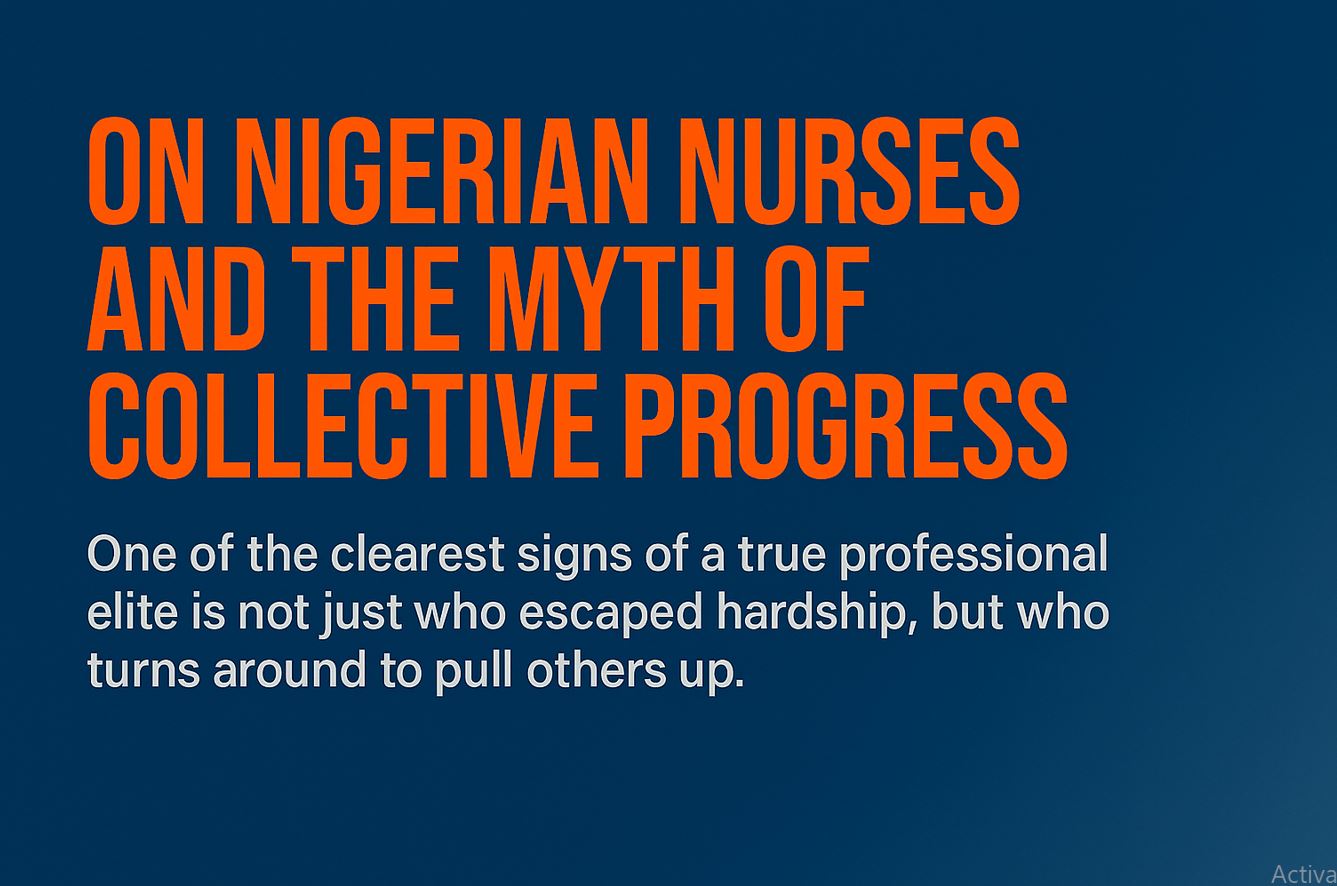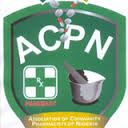INTRODUCTION
I am writing to express the deep concern of the Reformed Forum of Pharmacy Technicians in Nigeria (RFPTN) regarding the recent report on the low turnout for Direct Entry registration, as highlighted by Vanguard Newspaper on June 6, 2024, https://www.vanguardngr.com/2024/06/direct-entry-registration-low-turnout-worries-jamb/
As an organization dedicated to advocating for and promoting the interests of pharmacy technicians in Nigeria, we believe it is imperative to address the concerns raised in the report and the significant impact it has on our members.
The Issue of Direct Entry Exclusion
The report outlining the low number of prospective registrants for the Direct Entry program is a cause for serious concern for all stakeholders invested in the education and healthcare sectors of Nigeria. We at RFPTN posit that a significant portion (90%) of the anticipated influx of prospective registrants would be comprised of pharmacy technicians who have been unjustly denied Direct Entry admission for the past three years. This constitutes a critical issue demanding urgent attention from the Joint Admissions and Matriculation Board (JAMB) and other relevant authorities.
Impact on Pharmacy Technicians and the Healthcare System
The exclusion of pharmacy technicians from the Direct Entry program has demonstrably hampered the professional development of these qualified individuals. This policy acts as a roadblock, preventing them from furthering their education and acquiring advanced skills that would significantly contribute to their expertise and elevate the standard of care within the Nigerian healthcare system. By hindering their ability to upskill, JAMB's policy inadvertently restricts the growth of a competent and qualified pharmacy workforce, which is essential for ensuring optimal patient care.
RFPTN's Call to Action and Efforts for Collaboration
RFPTN strongly urges JAMB to meticulously re-evaluate its stance on the Direct Entry program and reconsider its exclusion of pharmacy technicians. We firmly believe that these qualified professionals deserve the opportunity to enhance their knowledge and refine their skillset through higher education. RFPTN stands ready and willing to collaborate constructively with JAMB to address any concerns they may harbor and to work collaboratively to establish a streamlined and efficient registration process specifically tailored for our members.
We recognize the immense potential that pharmacy technicians possess to make a substantial contribution to the Nigerian healthcare system. Their expertise and specialized skills are crucial for ensuring the smooth and efficient operation of pharmacies across the nation. Equipping them with the opportunity to further their education would not only empower them as individuals but would also demonstrably elevate the quality of care provided by pharmacies throughout Nigeria.
Unproductive Engagement with JAMB
Despite RFPTN's unwavering commitment to fostering a collaborative dialogue, our efforts to engage with JAMB on this critical issue have regrettably proven unsuccessful thus far. Our attempts to establish a productive working relationship have been met with a concerning lack of response. RFPTN formally submitted a letter requesting a courtesy meeting with the Registrar of JAMB, proposing a mutually convenient date for a discussion. However, this request was inexplicably disregarded. This lack of responsiveness is disheartening and stands in stark contrast to the collaborative spirit that is necessary to address this issue effectively.
We sincerely hope that JAMB will reconsider its stance and demonstrate a willingness to engage with RFPTN in productive dialogue to arrive at a solution that serves the best interests of all stakeholders, particularly the patients who depend on a well-functioning healthcare system.
The Critical Role of Collaboration Between JAMB and PCN
We are aware that the Pharmacy Council of Nigeria (PCN) has provided assurances regarding their engagement with JAMB with the intention of resolving this matter. However, there is a paucity of evidence indicating any tangible progress from these efforts. It is crucial for JAMB and PCN, both federal government agencies, to cultivate a robust and collaborative working relationship, particularly on matters that directly affect their respective stakeholders. We strongly encourage both agencies to establish a clear and comprehensive understanding of the situation and to work cohesively to arrive at a lasting resolution to this longstanding issue.
The conspicuous absence of collaboration between JAMB and PCN serves as a significant impediment to the professional advancement of our members and poses a considerable obstacle to the growth and development of the Nigerian healthcare system. A collaborative effort between these two agencies would not only pave the way for our members to pursue higher education but would also contribute significantly to fostering a more robust and efficient healthcare system within Nigeria.
A Call for Positive Action
The RFPTN reiterates its urgent plea to JAMB to meticulously re-evaluate its policy regarding Direct Entry admission for pharmacy technicians. We implore them to reconsider their stance and provide a clear path for these qualified professionals to access the educational opportunities they deserve. RFPTN stands ready and committed to collaborating constructively with JAMB to find a solution that addresses the concerns of all parties involved.
We are confident that by working together, we can arrive at a solution that not only empowers pharmacy technicians to reach their full potential but also fosters a healthcare system in Nigeria that delivers exceptional patient care and service to the nation.
The Potential Benefits of Including Pharmacy Technicians in Direct Entry
Opening the Direct Entry pathway to pharmacy technicians would bring a multitude of advantages to both the individual professionals and the healthcare system as a whole.
Enhanced Patient Care: By allowing pharmacy technicians to pursue higher education and qualifications, they can expand their knowledge base and refine their skills. This translates into better medication management, improved patient education, and a heightened capacity to identify and address potential drug interactions or therapeutic problems.
Elevated Efficiency in Pharmacies: A more qualified pharmacy technician workforce would significantly improve efficiency within pharmacies. Technicians with advanced training could take on greater responsibility, freeing up pharmacists to focus on tasks that demand their specialized expertise. This would lead to reduced wait times, improved accuracy in dispensing medications, and a more streamlined overall pharmacy experience for patients.
Addressing the Workload: The Nigerian healthcare system is constantly under strain due to a growing population and a corresponding increase in healthcare demands. Including pharmacy technicians in the Direct Entry program would contribute to addressing this growing workload. By enabling more individuals to enter the profession and qualify for higher positions, pharmacies could distribute the workload more effectively, ensuring adequate staffing levels to meet patient needs.
Economic Growth: An empowered and qualified pharmacy technician workforce would have a positive impact on the Nigerian economy. Increased opportunities for professional development would lead to higher job satisfaction and retention within the profession. This, in turn, would contribute to a more stable and productive pharmacy workforce, fostering economic growth within the healthcare sector.
Conclusion
The exclusion of pharmacy technicians from the Direct Entry program is a policy that stands counterproductive to the well-being of the profession and the Nigerian healthcare system at large. The RFPTN urges JAMB to recognize the immense potential that pharmacy technicians possess and the significant contribution they can make. By granting them access to Direct Entry and higher education, JAMB has the opportunity to empower these professionals, elevate the standard of care within pharmacies, and contribute to a more robust and efficient healthcare system in Nigeria.
We, at the RFPTN, strongly believe that fostering a collaborative dialogue with JAMB and the PCN is the most effective pathway to achieving a positive resolution. We are unwavering in our commitment to working together with all stakeholders to ensure that qualified pharmacy technicians are equipped with the knowledge and skills they need to serve the Nigerian healthcare system to the best of their ability.




